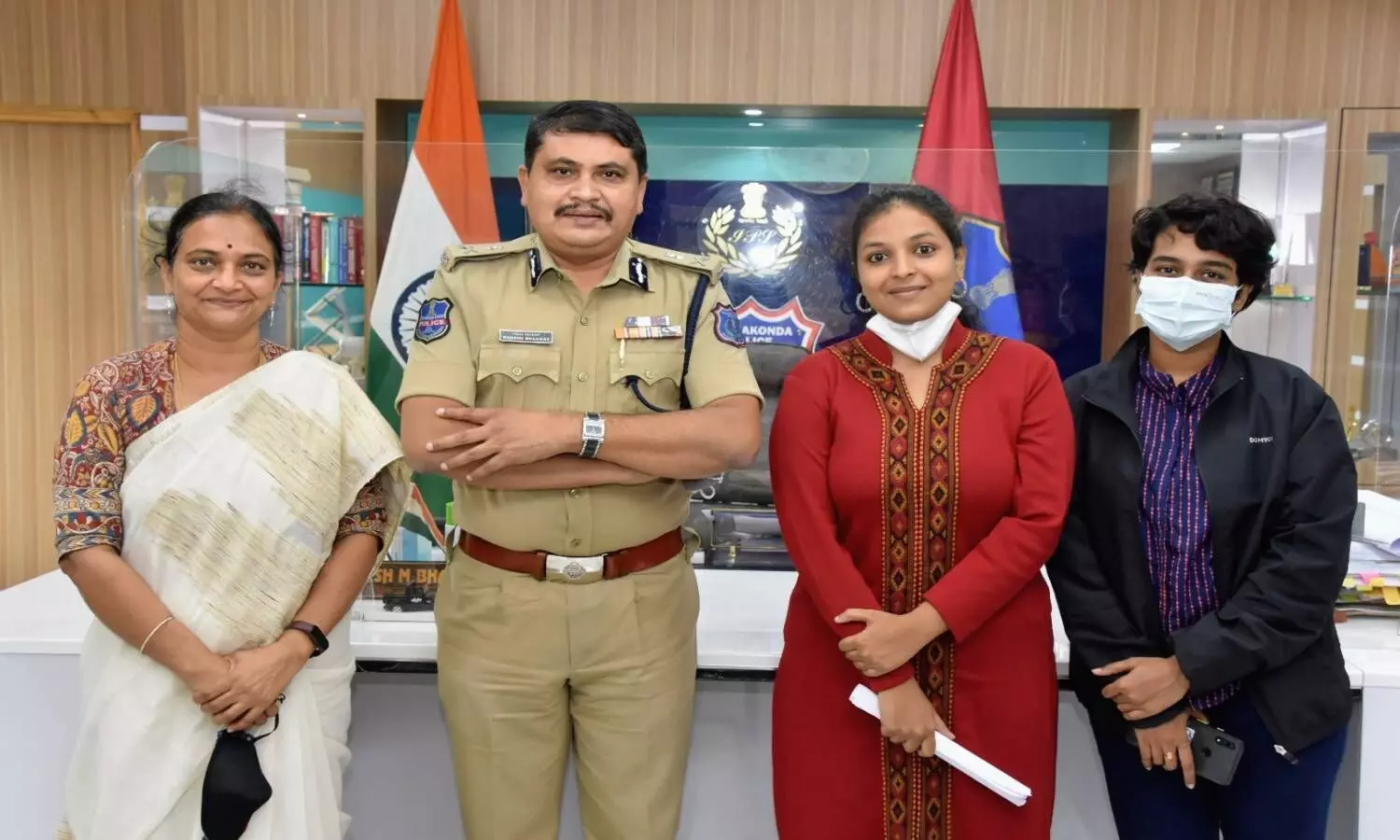`BusLoBharosa': Of unsafe public transport, sexual harassment and behavioral change
BusLoBharosa was born out of countless lived experiences and the onus victims have to shoulder, each time they experience street sexual harassment.
By Newsmeter Network
Every single time a stranger eyed me with lust,
I managed to navigate and escape the touch;
As the unknown eyes devoured me inch by inch,
My skin crawled and shrunk;
While I froze under the debris of a million haunting flashbacks!
It was about 8 PM. I boarded the bus at the Secunderabad bus stand to travel back home. It was a fairly empty bus and I took my seat. Soon came a seemingly decent man - short, dressed in brown-- who headed straight to my seat and sat next to me. I assumed the men's section of seats was occupied, though I lacked the courage to turn around and check with this man beside me.
He inquired about the time and chirped in all of a sudden, "Nice dress,". I pretended to not hear him. He quietly put his hand over my thigh and rubbed over it. I was in shock; all my senses froze! He snuggled closer and tried to whisper some gibberish in my ear. His gaze stayed on me. Even before I realized what I was going through, I was molested.
I took my time to process the incident. I slowly mustered the courage to raise my voice and stand up for myself. He was giggling at me. I called the conductor for help. The man looked at me, only after judging me for how deep my neckline was. In addition, "Why did you allow him to do so? It's your fault," echoed the crowd!
Hardships women face due to the issue
A sample Focus Group Discussion conducted with 13 people (working women, students, and female bus conductors) revealed the hardships gender minorities face onboard, as street sexual harassment inside buses is itself an under-researched topic.
85% of the respondents were daily bus commuters.
69% of the respondents didn't feel safe inside a public bus, as they had lived experiences of sexual harassment onboard.
100% of the respondents said women and college girls traveling in buses are more prone to sexual harassment onboard.
39% of them said their immediate response to sexual harassment in a bus was shock and fear.
77% of the respondents said announcements against sexual harassment onboard may spread awareness and lead to long-term behavioral change.
85% said laminated posters with dedicated messages against sexual harassment would break the silence around street sexual harassment.
On top of this, mainstream pop culture penetrates the toxic culture of viewing women as sex objects. Victim-blaming prevents women from coming out bravely to report. All of this leads to the loss of freedom, privacy, access to public spaces, and most importantly the trust in commuting freely. No person deserves this.
National Sample Survey Organization (NSSO) data also shows that more than 60 percent of both rural and urban households use the bus as their primary mode of transport, and scores of people, especially women are heavily dependent on it. Ensuring a safer transit infrastructure would reflect an increase in our access to life's opportunities. It makes a difference not only to women's safety but also to the State's perception and seriousness of it.
How BLB started
Having been vexed to use keys, safety pins, books, and bags as safety armor, BusLoBharosa, as the name suggests, is trying to gift commuters onboard the lost trust in public spaces (like buses), due to sexual harassment. This form of harassment is different, and it needs solutions tailored to denormalize the crime. Aiming at bystander engagement and breaking the systemic silence around the issue, BusLoBharosa was born out of countless lived experiences and the onus victims have to shoulder, each time they experience street sexual harassment.
Four women (Hima Bindu, Kaumudi Nagaraju, Nikhitha, and Jaina), as part of the Awaaz-e-Telangana initiative by WomComMatters, have been actively campaigning for the cause.
Long term impact of BLB -
Apart from the functional SHE Teams who are proactive in ensuring women's safety, we need a step towards spreading awareness against street sexual harassment, leading to behavioral change.
We propose installing announcement systems and laminated posters with dedicated messages against sexual harassment and its reporting mechanisms. Reinforcing pro-social messages through public announcements subconsciously bears behavioral change at its core. Impact, you may ask? Well, do you know someone who would now pick up stranded bags or suspicious objects in a railway station anymore? Or do you see more people standing by the doors in a metro? Why not? And even if someone does, we do know what to do next, don't we?
That is the power of message reinforcements through public announcements!
In a system that turns a blind eye to street sexual harassment, announcements subconsciously drive home a point. Denormalize it by spreading adequate awareness. It eventually leads to positive behavioural change
Announcements and Laminated posters inside the bus with dedicated messages against sexual harassment, and helpline numbers imprinted on the posters, encourage bystander engagement and help more people to report the crime. Hence, allowing women and other gender minorities to travel more confidently henceforth – as our invisible struggles feel systemically seen.
Mobility is the focal point that connects women to economic independence, which will in turn take us closer to the goal of women's empowerment. Hence, it is of critical importance that we ensure that a safer, gender-responsive transit infrastructure is in place that accommodates the needs of the most vulnerable sections of the society, to counter street sexual harassment.
Petition link - change.org/BusLoBharosa
Facebook Live with Mahesh Bhagawat, Commissioner of Police, Rachakonda - https://www.facebook.com/
Instagram, Twitter, Facebook - @buslobharosa
The article is written by the BusLoBharosa team.